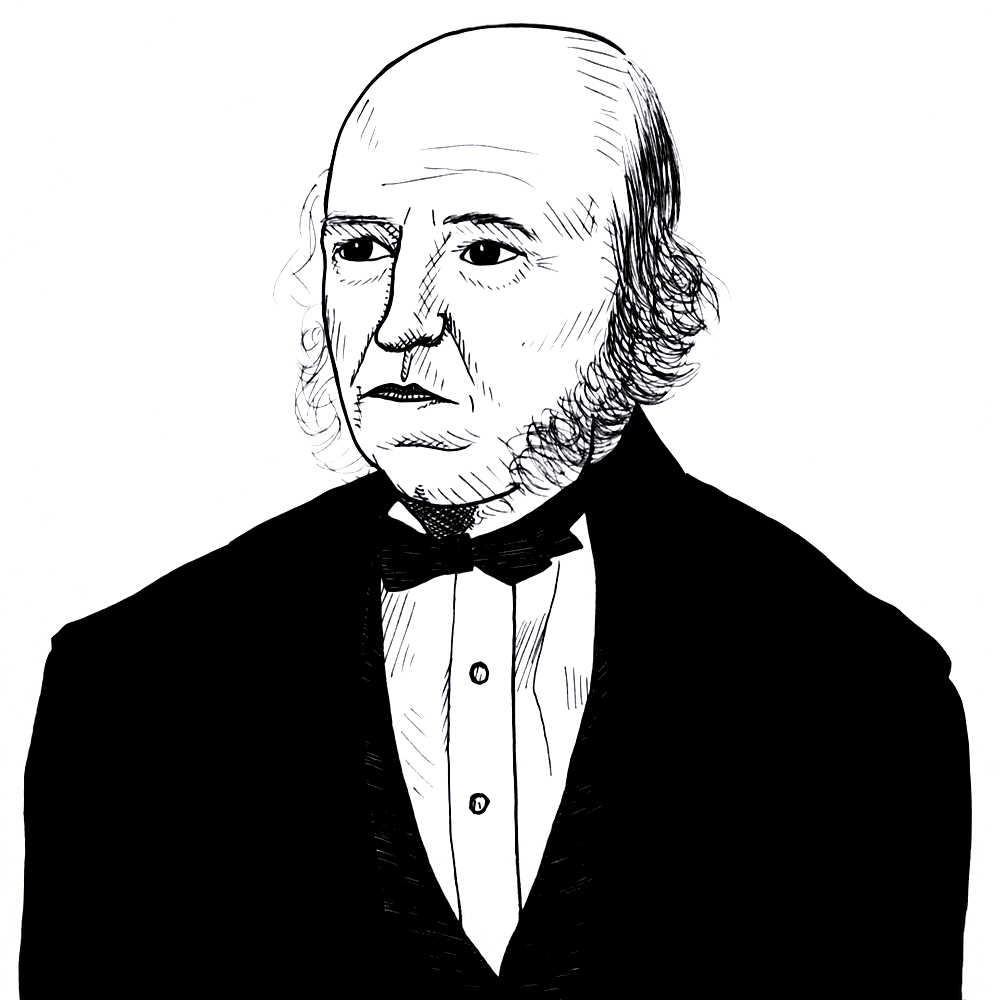
Quotes by Herbert Spencer
1820 – 1903
Herbert Spencer (1820-1903) was one of the leading 19th century English radical individualists. He began working as a journalist for the laissez-faire magazine The Economist in the 1850s. Much of the rest of his life was spent working on an all-encompassing theory of human development based upon the ideas of individualism, utilitarian moral theory, social and biological evolution, limited government, and laissez-faire economics.
Bio
See the Liberty Matters online discussion on Herbert Spencer’s Sociology of the State
Read the Liberty Classic Equality and Freedom in Herbert Spencer’s Principles of Ethics from Econlib
Read the Liberty Classic Hijacking Liberalism: Spencer’s The Man Versus the State from Law & Liberty
See the Timeline of the Life and Work of Herbert Spencer:
Key: events in the author’s life (blue); historical events (green); books & organisations (red)
Spencer featured as the April 2023 OLL Birthday. Read it here
Food & Drink
As if in answer to Erasmus' prayer, Spencer does become a Philosopher of the Kitchen arguing that “if there is a wrong in respect of the taking of food (and drink) there must also be a right” (1897)
Origin of Government
Herbert Spencer makes a distinction between the “militant type of society” based upon violence and the “industrial type of society” based upon peaceful economic activity (1882)
War & Peace
Herbert Spencer argued that in a militant type of society the state would become more centralised and administrative, as compulsory education clearly showed (1882)
Parties & Elections
Herbert Spencer takes “philosophical politicians” to task for claiming that government promotes the “public good” when in fact they are seeking “party aggrandisement” (1843)
Natural Rights
Herbert Spencer concludes from his principle of equal freedom that individuals have the Right to Ignore the State (1851)
Food & Drink
Herbert Spencer on the pitfalls of arguing with friends at the dinner table (1897)
Sport and Liberty
Herbert Spencer worries that the violence and brutalities of football will make it that much harder to create a society in which individual rights will be mutually respected (1879)
Parties & Elections
Spencer on voting in elections as a screen behind which the wirepullers turn the sovereign people into a puppet (1882)
Parties & Elections
Spencer on voting as a poor instrument for protecting our rights to life, liberty, and property (1879)
Economics
Spencer on spontaneous order produced by “the beneficent working of social forces” (1879)
Liberty
Herbert Spencer on the prospects for liberty (1882)
Property Rights
Herbert Spencer on human nature and the right to property (1851)
War & Peace
Herbert Spencer on the State’s cultivation of “the religion of enmity” to justify its actions (1884)
Society
Herbert Spencer on customs which are the result of human action but not of deliberate design (1876)
Society
Herbert Spencer on the idea that society is a spontaneous growth and not artificially put together (1860)
Law
Herbert Spencer on the superiority of private enterprise over State activity (1853)
The State
Herbert Spencer notes that traditionally the growth in government revenue has come about because of war (1882)
Class
Herbert Spencer observes that class structures emerge in societies as a result of war and violence (1882)
Politics & Liberty
Herbert Spencer on “the seen” and “the unseen” consequences of the actions of politicians (1884)
Natural Rights
Herbert Spencer on the right of political and economic “dissenters” to have their different beliefs and practices respected by the state (1842)